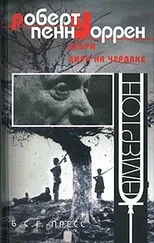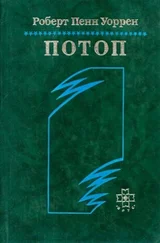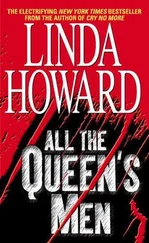Роберт Уоррен - All the king's men
Здесь есть возможность читать онлайн «Роберт Уоррен - All the king's men» весь текст электронной книги совершенно бесплатно (целиком полную версию без сокращений). В некоторых случаях можно слушать аудио, скачать через торрент в формате fb2 и присутствует краткое содержание. Жанр: Современная проза, на английском языке. Описание произведения, (предисловие) а так же отзывы посетителей доступны на портале библиотеки ЛибКат.
- Название:All the king's men
- Автор:
- Жанр:
- Год:неизвестен
- ISBN:нет данных
- Рейтинг книги:4 / 5. Голосов: 1
-
Избранное:Добавить в избранное
- Отзывы:
-
Ваша оценка:
- 80
- 1
- 2
- 3
- 4
- 5
All the king's men: краткое содержание, описание и аннотация
Предлагаем к чтению аннотацию, описание, краткое содержание или предисловие (зависит от того, что написал сам автор книги «All the king's men»). Если вы не нашли необходимую информацию о книге — напишите в комментариях, мы постараемся отыскать её.
All the king's men — читать онлайн бесплатно полную книгу (весь текст) целиком
Ниже представлен текст книги, разбитый по страницам. Система сохранения места последней прочитанной страницы, позволяет с удобством читать онлайн бесплатно книгу «All the king's men», без необходимости каждый раз заново искать на чём Вы остановились. Поставьте закладку, и сможете в любой момент перейти на страницу, на которой закончили чтение.
Интервал:
Закладка:
She rose abruptly from her chair, and thinking I was being dismissed, I rose, too, clumsily, and started to say something by way of a good-bye. I was ready and anxious to go. I had been a fool to come. But she reached to touch my sleeve, and said, "I want to show you something." She moved away, toward the door. "Come with me," she said.
I followed her into the little hall, down it, and into a back room. She went across the room briskly. I didn't take it in at first, but there by the window was a crib and in the crib was a baby.
She was standing on the far side of the crib looking across at me at the instant when I really saw what was there. I guess my face was a study. Anyway, she said, "It's Tom's baby. It's my little grandbaby. It's Tom's baby."
She leaned over the crib, touching the baby here and there the way women do. Then she picked it up, holding it up with one hand behind its head to prop the head. She joggled it slightly and looked directly in its face. The baby's mouth opened in a yawn, and its eyes squinched and unsquinched, and then with the joggling and clucking it was getting it gave a moist and pink and toothless smile, like an advertisement. Lucy Stark's face had exactly the kind of expression on it which you would expect, and that expression said everything there was to say on the subject in hand.
She came around the crib, holding the baby up for my inspection.
"It's a pretty baby," I said, and put out a forefinger for the baby to clutch, the way you are supposed to do.
"It looks like Tom," she said. "Don't you think so?"
Then before I could get an answer ready that wouldn't be too horrendous a lie, she went on. "But that's silly to ask you. You wouldn't know. I mean he looks like Tom when he was a baby." She paused to inspect the baby again. "It looks like Tom," she said, more to herself than to me. Then she looked directly at me. "I know it's Tom's," she declared fiercely to me, "it's got to be Tom's, it looks like him."
I looked critically at the baby, and nodded. "It favors him, all right," I agreed.
"To think," she said, "there was a time I prayed to God it wasn't Tom's baby. So an injustice wouldn't be Tom's." The baby bounced a little in her arms. It was a husky, good-looking baby, all right. She gave the baby an encouraging jiggle, and then looked back at me. "And now," she continued, "I have prayed to God that it is Tom's. And I know now."
I nodded.
"I knew in my heart," she said. "And then, do you think that poor girl–the mother–would have given it to me if she hadn't known it was Tom's. No matter what that girl did–even what they said–don't you think a mother would know? She would just know."
"Yes," I said.
"But I knew, too. In my heart. So I wrote her a letter. I went to see her, I saw the baby and held him. I persuaded her to let me adopt him."
"You've got it fixed for a legal adoption?" I asked. "So she won't–" I stopped before I could say, "be bleeding you for years."
"Oh, yes," she said, apparently not reading my mind. "I got a lawyer to see her and fix everything. I gave her some money, too. The poor girl wanted to go to California and get away. Willie didn't have much money–he spent almost everything he made–but I gave her what I could. I gave her six thousand dollars."
So Sibyl had made a good thing out of it after all, I reflected.
"Don't you want to hold him?" Lucy asked me in an excess of generosity, thrusting out the expensive baby in my direction.
"Sure," I said, and took him. I hefted him, while I carefully tried to keep him from falling apart. "How much does he weigh?" I asked, and suddenly realized that I had the tone of a man about to buy something.
"Fifteen pounds and three ounces," she answered promptly; and added, "that is very good for three months."
"Sure," I said, "that's a lot."
She relieved me of the baby, gave him a sort of quick snuggle to her bosom, bending her head down so her face was against the baby's head, and then replaced him in the crib.
"What's his name?" I asked.
She straightened up and came around to my side of the crib. "At first," she said, "I thought I'd name him for Tom. I thought that for quite a while. Then it came to me. I would name him for Willie. His name is Willie–Willie Stark."
She led the way out into the little hall again. We walked up toward the table where my hat lay. Then she turned around and scrutinized my face as though the light weren't very good in the hall.
"You know," she said, "I named him for Willie because–"
She was still scrutinizing my face.
"–because," she continued, "because Willie was a great man."
I nodded, I suppose.
"Oh, I know he made mistakes," she said, and lifted up her chin as though facing something, "bad mistakes. Maybe he did bad things, like they say. But inside–in here, deep down–" and she laid her hand to her bosom–"he was a great man."
She wasn't bothering with my face any more, with trying to read it. For the moment, she wasn't bothering with me. I might as well not have been there.
"He was a great man," she affirmed again, in a voice nearly a whisper. Then she looked again at me, calmly. "You see, Jack," she said, "I have to believe that."
Yes, Lucy, you have to believe that. You have to believe that to live. I know that you must believe that. And I would not have you believe otherwise. It must be that way, and I understand the fact. For you see, Lucy. I must believe that, too. I must believe that Willie Stark was a great man. What happened to his greatness is not the question. Perhaps he spilled it on the ground the way you spill a liquid when the bottle breaks. Perhaps he piled up his greatness and burnt it in one great blaze in the dark like a bonfire and then there wasn't anything but dark and the embers winking. Perhaps he could not tell his greatness from ungreatness and so mixed them together that what was adulterated was lost. But he had it. I must believe that.
Because I came to believe that, I came back to Burden's Landing. I did not come to believe it at the moment when I watched Sugar-Boy mount the stairs from the basement hall of the public library or when Lucy Stark stood before me in the hall of the little paint-peeling white house in the country. But because of those things–and of all the other things which had happened–I came, in the end, to believe that. And believing that Willie Stark was a great man, I could think better of all other people, and of myself. At the same time that I could more surely condemn myself.
I came back to Burden's Landing in early summer, at the request of my mother. She telephoned me one night and said, "Son, I want you to come here. As soon as you can. Can you come tomorrow?"
When I asked her what she wanted, for I still did not want to go back, she refused to answer me directly. She said she would tell me when I came.
So I went.
She was waiting for me on the gallery when I drove up late the next afternoon. We went around to the screened side gallery and had a drink. She wasn't talking much, and I didn't rush her.
When by near seven o'clock the Young Executive hadn't turned up, I asked her was he coming to dinner.
She shook her head. "Where is he?" I asked.
She turned her empty glass in her hand, lightly clinking the ice left there. Then she said, "I don't know."
"On a trip?" I asked.
"Yes," she answered, clinking the ice. Then she turned to me. "He has been gone five days," she said. "He won't come back until I have gone. You see–" she set the glass down on the table beside her with an air of finality–"I am leaving him."
"Well," I breathed, "I'm damned."
She continued to look at me, as though expecting something. What, I didn't know.
"Well, I'm damned," I said, still fumbling with the fact which she had presented to me.
Читать дальшеИнтервал:
Закладка:
Похожие книги на «All the king's men»
Представляем Вашему вниманию похожие книги на «All the king's men» списком для выбора. Мы отобрали схожую по названию и смыслу литературу в надежде предоставить читателям больше вариантов отыскать новые, интересные, ещё непрочитанные произведения.
Обсуждение, отзывы о книге «All the king's men» и просто собственные мнения читателей. Оставьте ваши комментарии, напишите, что Вы думаете о произведении, его смысле или главных героях. Укажите что конкретно понравилось, а что нет, и почему Вы так считаете.





![Роберт Уоррен - Рассказы [Компиляция]](/books/419993/robert-uorren-rasskazy-kompilyaciya-thumb.webp)


